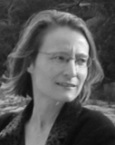Interview met Spinozageleerde Ursula Renz
 Een dag of vijf geleden verscheen op het e-zine 3am een uitgebreid interview dat Richard Marshall had met Ursula Renz:
Een dag of vijf geleden verscheen op het e-zine 3am een uitgebreid interview dat Richard Marshall had met Ursula Renz: After Spinoza: wiser, freer, happier.
[Zie werk van haar hier en hier op dit blog; foto van haar pagina bij de Universität Zürich]
Een citaat eruit:
"3:AM: Of course it’s for your work on Spinoza that you are best known. To introduce us to this philosopher, can you say some general things about why he is a particularly important and special thinker to you? And why contemporaries should know about him?
UR: Spinoza was a very rigid and autonomous thinker whose works exhibit a strong sense of systematicity. What I mean thereby is the following: Spinoza is always very clear about the implications of a certain claim for claims in other fields. Hence I do not think that the systematicity of Spinoza’s works is simply due to his usage of the geometrical method. On the contrary, his usage of the geometrical method is, in my view, a matter of the exposition of this systematicity, rather than of proof. Still, his usage of this method shows that he had firm idea of how things cohere with each other. To get an understanding of these connections is extremely instructive, even if one does not follow him in all his points. Moreover, Spinoza’s is as rich as it is rigorous, one can find interesting and challenging views on almost everything: metaphysics, religion, knowledge and science, morality, social life, and politics as wells as, of course, all kinds of mental phenomena."[Hier op 3am het hele interview]
Aanvulling:
Interview is opgenomen in Richard Marshall, Philosophy at 3:AM: Questions and Answers with 25 Top Philosophers. OUP USA, 2014 - books.google
Wel grappig is dat de interviewer als titel van het hoofdstuk niet een uitsraak van Ursula Renz in dit interview gebruikt (hoewel die suggestie wordt gewekt), maar zoals hij het zelf in een vraag formuleerde. Maar die formulering haalde hij - zonder dat duidel;ijk te maken - uit haar boek, waar ze op p. 11 schreef: ""Subjective experience can be explained, and its successful explanation is ethically relevant, because is makes us wiser, freer and happier."


Reacties
Een zeer bevlogen tante, die Ursula. Heb genoten van haar interview. Ben het echter principieel oneens met haar visie dar "Spinoza's epistemology is not at all a form of naturalized epistemology". Dit zinspeelt op een afweer van de fameuze Quine (Epistemology naturalized, 1950) en daar heeft zij ongelijk in. Spinoza is en doet precies wat Quine voor ogen stond: science produces knowledge of science (= epistemo-logy).
Wim Klever 22-09-2012 @ 17:58
Om iets meer te vatten waar het hier om gaat voeg ik hier haar samenvatting toe van dit artikel:
Renz, Ursula (2009). Spinozas Erkenntnistheorie: Eine naturalisierte Epistemologie? Deutsche Zeitschrift f¨¹r Philosophie, 57(3):419-432.
Abstract: This article addresses the question whether or not, in his Ethics, Spinoza is committed to a naturalized epistemology. In the first step, the cognitive psychological principles involved in the concept of imagination are discussed. It is shown that Spinoza does indeed suggest a causal account for the contents of human thought, yet, in contrast to many psychologist views he does not privilege physicalist explanations, but allows for historical as well as for linguistic accounts. In the second section, a similar differentiation is made in regard to the theory of common notions. Whereas in claiming that human minds necessarily have adequate knowledge of certain properties of things, Spinoza does rely on certain psychological facts, his concept of common notions can better be explicated independently of psychological assumptions. A conclusive argument against a naturalist interpretation of Spinoza¡äs epistemology, however, is given in the third section via the analysis of the concepts of 'truth¡ä and 'true idea¡ä. It shows that Spinoza not only embraces the idea of an epistemic normativity, but moreover admits the irrecucibilityof this normativity to natural properties. Since, in respect to moral normativity, Spinoza exhibits quite a different attitude, it can be assumed that he never wanted to provide naturalized epistemology.
https://www.zora.uzh.ch/28674/
Stan Verdult 22-09-2012 @ 21:19
Rond grotendeels dezelfde problematiek schreven Susan James en Eric Schliesser elk een interessant doch niet eenstemmig artikel voor The Aristotelian Society. Die beide artikels staan nu in Nederlandse vertaling in extenso en gratis op de website van Spinoza in Vlaanderen: http://blog.seniorennet.be/spinoza_in_vlaanderen .
Karel D'huyvetters 23-09-2012 @ 09:34